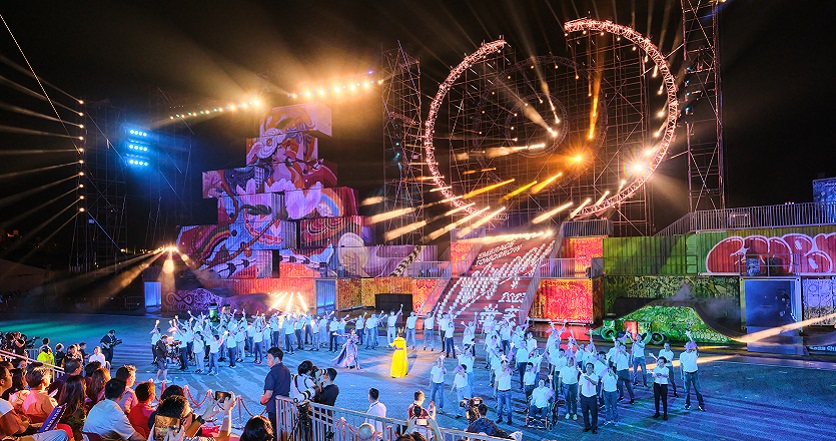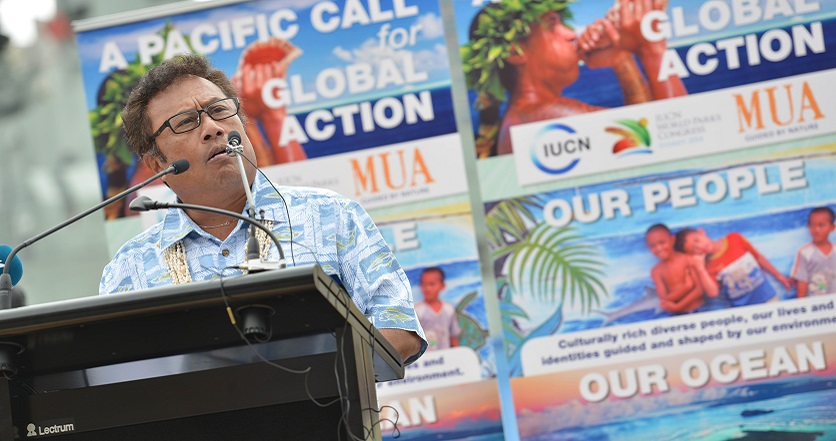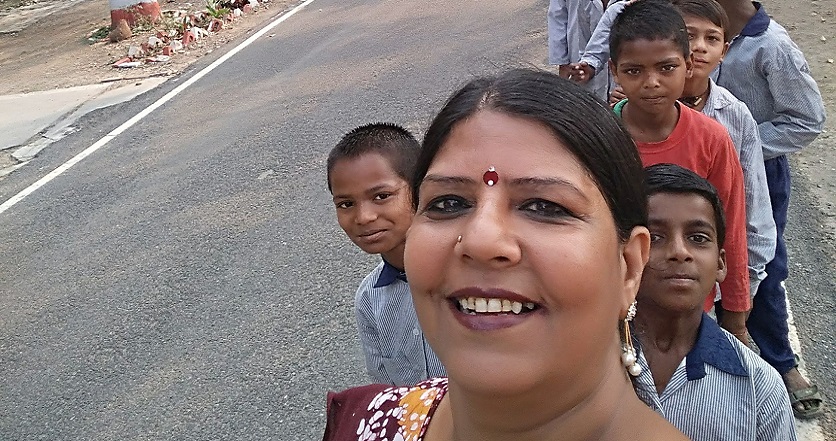Dialogue, Dignity and Hope: Introducing the Ikeda Center for Peace, Learning, and Dialogue
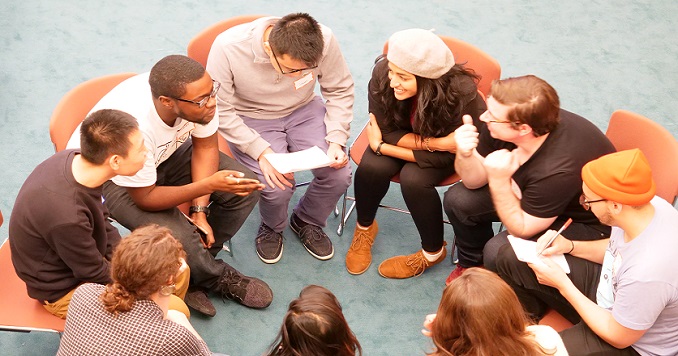
How the Soka Gakkai-affiliated Ikeda Center for Peace, Learning, and Dialogue is bringing people together in dialogue around a vision of a world based on dignity.
The Ikeda Center was founded by Daisaku Ikeda as the Boston Research Center for the 21st Century on September 24, 1993, the day of his Harvard University lecture, “Mahayana Buddhism and Twenty-first Century Civilization.” In 2009, Mr. Ikeda agreed to our request to change our name to the Ikeda Center for Peace, Learning, and Dialogue, which reflects our founder’s commitment to these ideals and more clearly expresses the objectives of our work.
The Ikeda Center envisions a world built on . . . the inherent moral equality and inviolable dignity of all persons.
From the start, center programs have focused on the mission of bringing a diverse mix of scholars and other socially-engaged individuals together to help establish a shared global ethic across cultures and religions. Among early activities too numerous to summarize, one in particular illustrates this ethic. Throughout the late 1990s, working in collaboration with Dr. Steven Rockefeller, the center organized several consultations with key NGOs in support of drafting the Earth Charter, which is both “a universal expression of ethical principles to foster sustainable development” and a global network working today to advance these values.
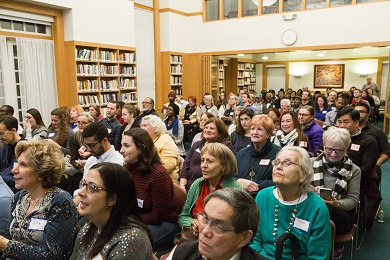
As the center grew and developed, Mr. Ikeda would on occasion mark key milestones with messages offering philosophical guidance and support. Based on these messages, we created our present vision statement, which opens: “The Ikeda Center envisions a world built on two essential attributes: first, a deep respect for the inherent moral equality and inviolable dignity of all persons; and second, an unshakeable conviction in the infinite potential of individuals to transform themselves and the world for the better.”
Honoring these attributes calls forth the core practice of the center: dialogue. Indeed, the dialogical mode of interpersonal engagement both honors the sacred selfhood of the other and builds hope for the future by bringing out the best in all involved.
The Practice of Dialogue
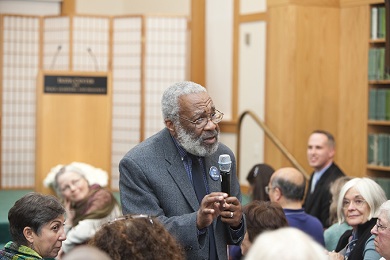
It is only fitting then that the center’s signature event is the Ikeda Forum for Intercultural Dialogue. Launched in 2004, each forum gathers scholars from diverse disciplines and backgrounds to explore key ideas from Daisaku Ikeda’s philosophy of Buddhist humanism.
Perhaps no figure has embodied the spirit of the Ikeda Forum more than the late historian of social change Vincent Harding, who spoke at three Ikeda Forums, in 2008, 2010 and 2013. It was during his last appearance that he distilled the essence of both dignity and hope. “Don’t be afraid of dreams,” he insisted. “The capacity to dream is an absolutely human capacity,” adding that those of us “who believe in freedom . . . cannot rest from dreaming.”
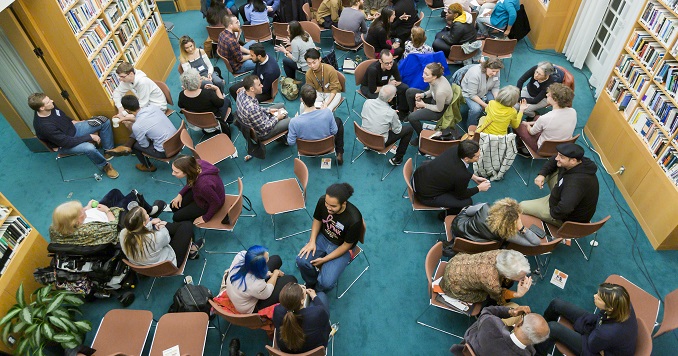
More recently, the forum has expanded to include the participation and leadership of university students and young professionals. This was exemplified by 2019’s “Can Dialogue Save the World? Exploring the Power of Human Connections,” the end result of a several-month-long experiment in intergenerational dialogue. One main takeaway was that in dialogue there is no hierarchy, no matter the participants’ relative age or credentials.
The impetus for incorporating the voices of younger people was the launching of the center’s Dialogue Nights series in 2017, which was conceived as a response to Daisaku Ikeda’s belief in the infinite potential of youth to be agents of change in their local communities. Now, five years and 20 events later, Dialogue Nights has proven itself a consistent source of inspiration and joy for all involved.
Bluer Than Indigo
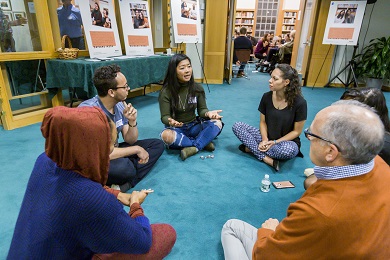
The Ikeda Forum and Dialogue Nights both foreground the center’s commitment to dialogue, but in truth dialogue is the heart of every center project. Running alongside its public programs, the Ikeda Center’s publications program develops two kinds of dialogical books. First, the center’s Dialogue Path Press (DPP) has published the definitive English-language versions of ten of Daisaku Ikeda’s book-length dialogues. Two of these have won education book awards in the US, including America Will Be! Conversations on Hope, Freedom, and Democracy (2013) with the aforementioned Vincent Harding.
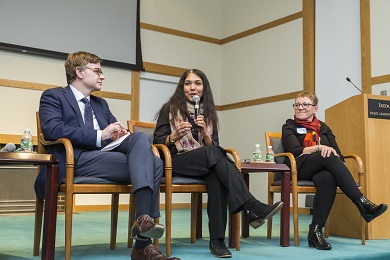
The center also develops multiauthor volumes that are published in association with major academic presses. To date these have been used in more than 1,000 courses at more than 275 colleges and universities. The center’s newest volume, Hope and Joy in Education: Engaging Daisaku Ikeda Across Curriculum and Context, published by Columbia University’s Teachers College Press in 2021 and winner of a Society of Professors of Education Outstanding Book Award in 2022, is especially groundbreaking, as it is the first in which scholars place their own scholarship into direct dialogue with Mr. Ikeda’s written works.
The center’s other main programs are also firmly dialogical in character. The Global Citizens seminar series joins emerging scholars with established scholars in the center’s network to investigate core themes from Mr. Ikeda’s writings on global peacebuilding. And the Education Fellows program supports doctoral students pursuing research in key aspects of value-creating education, enabling them to benefit from the insights of an advisory board featuring some of the most respected education scholars in the US.
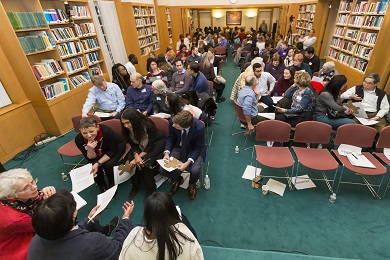
Finally, the recently launched Indigo Talks lecture series features humanistically-oriented scholars presenting a public lecture during which they consider Ikeda’s body of work from fresh angles. The first presenter, in 2021, was Dr. Francyne Huckaby, whose lecture, “Two Bundles of Reeds: (In)evitable Pain, (Im)possible Promise,” explored how the perception of interdependence might inform our understanding of current social struggles. The title of the series is taken from the Buddhist metaphor for the mentor-disciple relationship in which items repeatedly dyed with indigo turn an even deeper blue, signifying how the disciple’s continued engagement with the mentor’s teachings can lead to ever-new manifestations of wisdom and compassion. Now, as the center approaches its 30th anniversary year, we are committed to deepening our own understanding of Daisaku Ikeda’s philosophy and giving his ideas fresh expression among ever-increasing numbers of global citizens.





